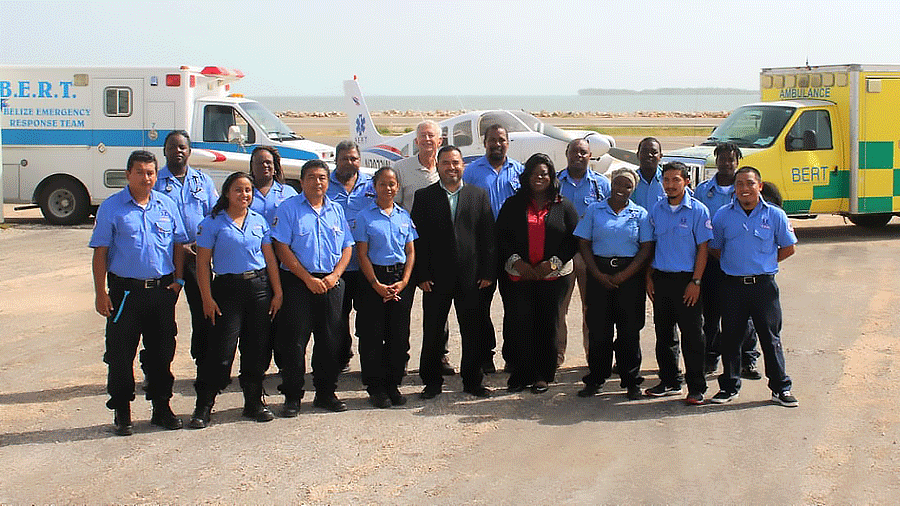
Belize
Global Humanitarian Network Partner:
Belize Emergency Response Team
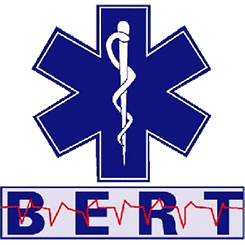
BERT, the Belize Emergency Response Team, is an essential organization that provides medical air evacuation coverage for the entire country of Belize, which has a population of 380,000 people. More than 40 years ago, with the help of Wings of Hope, BERT was established to provide a life-saving service to the people of Belize.
Today, BERT continues to be a vital presence in the country, ensuring critically ill or injured patients can be quickly transported to medical facilities where they can receive the care they need. The organization’s work is especially critical in Belize, where many remote areas have limited access to health care facilities.
Wings of Hope remains a strong partner of BERT, providing essential support services that help keep the organization’s aircraft in top condition. The organization provides annual maintenance for BERT’s aircraft, ensuring they are always ready to transport patients in need. Wings of Hope also sends relief pilots to assist BERT during times of high demand or emergencies.
Additionally, Wings of Hope helps BERT source aircraft and aircraft parts, ensuring the organization has the necessary equipment to carry out its lifesaving work. The partnership between these two organizations highlights the importance of collaboration and working together to support the health and well-being of communities worldwide.
Belize
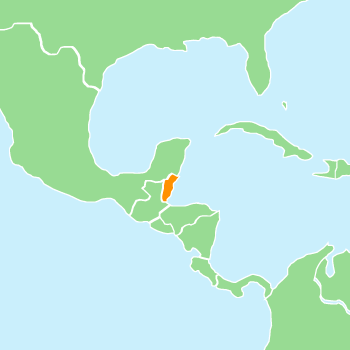
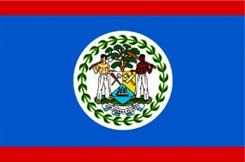
Capital: Belmopan
Currency: Belize Dollar BZ
Language: English, Creole patois
Landmark: Xunantunich
Geography:
Belize is located in Central America, bordered by Mexico to the north and Guatemala to the west and south. To the east, Belize is bounded by the Caribbean Sea. It shares a small border with Honduras to the southwest. This geographical positioning places Belize on the northeastern coast of Central America, with a coastline stretching along the Caribbean Sea. The country’s landscape is diverse, including coastal plains, low mountains in the south, and dense tropical forests inland. The Belize Barrier Reef, the second-largest barrier reef system in the world, runs along much of the country’s coastline.
The history of Belize dates to the pre-Columbian era, during which the Mayan civilization thrived and built impressive ceremonial centers, and developed advanced systems of writing, mathematics and astronomy. The arrival of the Spanish in the 16th century led to the establishment of a small colony, but the region remained largely undeveloped. The British loggers, known as baymen, began cutting logwood in the 18th century, leading to conflicts with the Spanish and the local Maya. The British formally claimed the territory in the late 18th century and established British Honduras. It remained undeveloped until the 20th century when the British began to encourage settlement and development. Belize gained self-government in 1964 and full independence in 1981, despite facing challenges such as a border dispute with Guatemala. Nevertheless, Belize has maintained a stable democracy and has become a popular tourist destination celebrated for its natural beauty and rich cultural heritage.
BERT’s work is focused on improving access to emergency medical services and providing training to health care professionals and the public on first aid and emergency response. This is an important step toward addressing the high burden of non-communicable diseases, infectious diseases, and maternal and child health issues in the country.
Belize provides 1.0 hospital beds per 1,000 inhabitants, while the global mean is 2.9 beds and within the US, 2.8 hospital beds per 1,000 inhabitants. There are about 451 physicians in Belize, compared to 1.50 worldwide and 2.6 in the US. The mortality of major known diseases can only be reduced in comparatively few cases.
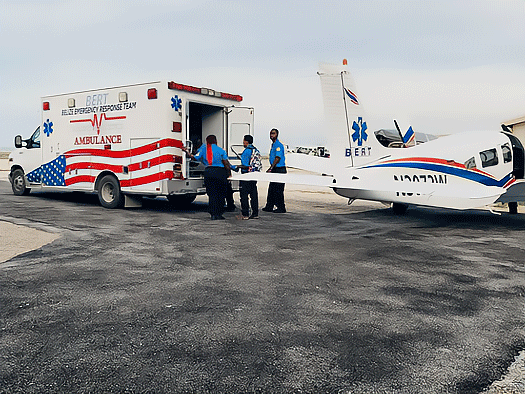
(Per Capita)
Belize
Worldwide
Disease (by percentage %)
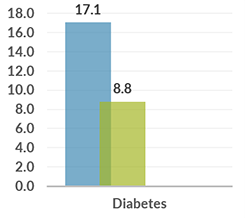
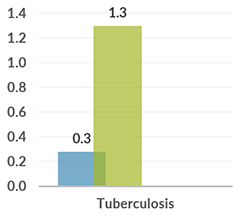
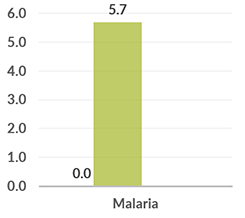
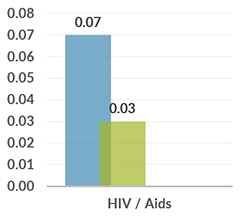
The number of people suffering from diabetes refers only to inhabitants aged between 20 and 79 years.
Child Vaccine (by percentage %)
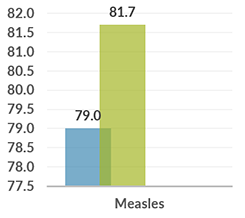
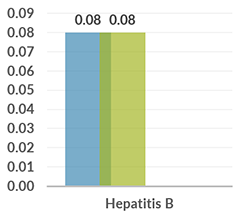
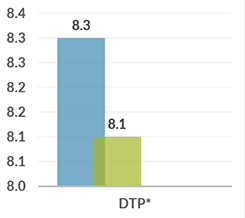
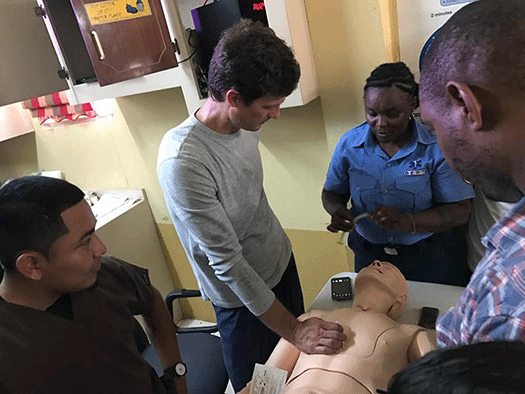
BERT’s commitment to providing quality training services stems from the recognition of the importance of basic first aid and CPR in saving lives. In an emergency, every second counts, and quick action can mean the difference between life and death. That is why BERT has made it its mission to educate as many people as possible in these critical skills.
BERT’s training programs are designed to be hands-on and interactive, providing participants with practical experience in life-saving techniques. The team of experienced instructors and medical professionals ensures that each training session is the highest quality and provides participants with the knowledge and confidence to act in an emergency.
In addition to its training programs, BERT is also a part of the American Heart Association, which gives it access to the latest research, technology and best practices in emergency response. BERT’s commitment to the AHA reflects its dedication to providing the highest level of care to its participants and communities.
BERT plays a vital role in ensuring the health and safety of communities across the country. Its range of training programs, combined with its AHA affiliation, makes BERT a valuable resource for individuals and organizations seeking to improve their emergency response capabilities.
The history of Belize dates to the pre-Columbian era, during which the Mayan civilization thrived and built impressive ceremonial centers, and developed advanced systems of writing, mathematics and astronomy. The arrival of the Spanish in the 16th century led to the establishment of a small colony, but the region remained largely undeveloped. The British loggers, known as baymen, began cutting logwood in the 18th century, leading to conflicts with the Spanish and the local Maya. The British formally claimed the territory in the late 18th century and established British Honduras. It remained undeveloped until the 20th century when the British began to encourage settlement and development. Belize gained self-government in 1964 and full independence in 1981, despite facing challenges such as a border dispute with Guatemala. Nevertheless, Belize has maintained a stable democracy and has become a popular tourist destination celebrated for its natural beauty and rich cultural heritage.
BERT’s work is focused on improving access to emergency medical services and providing training to health care professionals and the public on first aid and emergency response. This is an important step toward addressing the high burden of non-communicable diseases, infectious diseases, and maternal and child health issues in the country.
Belize provides 1.0 hospital beds per 1,000 inhabitants, while the global mean is 2.9 beds and within the US, 2.8 hospital beds per 1,000 inhabitants. There are about 451 physicians in Belize, compared to 1.50 worldwide and 2.6 in the US. The mortality of major known diseases can only be reduced in comparatively few cases.

(Per Capita)
Belize
Worldwide
Disease (by percentage %)




The number of people suffering from diabetes refers only to inhabitants aged between 20 and 79 years.
Child Vaccine (by percentage %)




BERT’s commitment to providing quality training services stems from the recognition of the importance of basic first aid and CPR in saving lives. In an emergency, every second counts, and quick action can mean the difference between life and death. That is why BERT has made it its mission to educate as many people as possible in these critical skills.
BERT’s training programs are designed to be hands-on and interactive, providing participants with practical experience in life-saving techniques. The team of experienced instructors and medical professionals ensures that each training session is the highest quality and provides participants with the knowledge and confidence to act in an emergency.
In addition to its training programs, BERT is also a part of the American Heart Association, which gives it access to the latest research, technology and best practices in emergency response. BERT’s commitment to the AHA reflects its dedication to providing the highest level of care to its participants and communities.
BERT plays a vital role in ensuring the health and safety of communities across the country. Its range of training programs, combined with its AHA affiliation, makes BERT a valuable resource for individuals and organizations seeking to improve their emergency response capabilities.
Saving Lives in Belize: Meet the Emergency Responders on the Frontlines
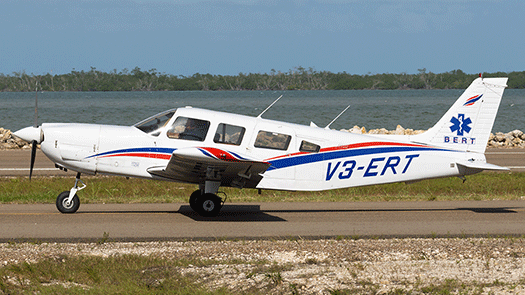
Belize Emergency Response Team (BERT) plays a crucial role in providing timely medical assistance to those in need, especially in remote and underserved areas of Belize. Their team of highly skilled and dedicated professionals works tirelessly to save lives and ensure the best possible outcome for each patient. BERT’s services not only include emergency response and medical transportation but also training and education for local communities on essential first aid and emergency preparedness. By providing these vital services and education, BERT is helping to improve the overall health and well-being of Belizeans and contributing to a stronger and more resilient society.






